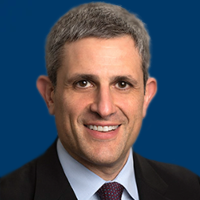Video
Dr. Meisel on Managing Toxicities Associated with T-DM1 in HER2+ Breast Cancer
Author(s):
Jane L. Meisel, MD, discusses managing toxicities associated with ado-trastuzumab emtansine in patients with HER2-positive breast cancer.
Jane L. Meisel, MD, an associate professor in the Departments of Hematology and Medical Oncology and Gynecology & Obstetrics at the Winship Cancer Institute, of Emory University School of Medicine, discusses managing toxicities associated with ado-trastuzumab emtansine (T-DM1; Kadcyla) in patients with HER2-positive breast cancer.
For patients who experience neuropathy associated with T-DM1, gabapentin can be utilized, Meisel says. Additionally, some patients find that using a cold compress on the fingers and toes during chemotherapy can help to prevent neuropathy from worsening, according to Meisel. It can be empowering for patients to know that they can manage their symptoms themselves, according to Meisel.
To decrease nosebleeds, which are another adverse effect (AE) associated with treatment, it is important to keep the nostrils moist by using Vaseline or even nasal sprays, Meisel says. Additionally, liver function abnormalities can be managed by encouraging patients to abstain from alcohol, acetaminophen (Tylenol), and other medications that might interfere with liver function tests, Meisel explains.
Fatigue is a multifactorial AE that is associated with T-DM1; this toxicity is often observed with many other breast cancers therapies, as well, Meisel concludes.









